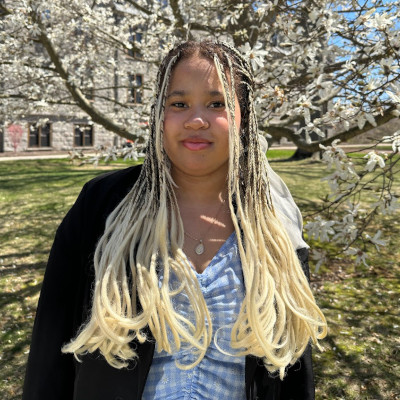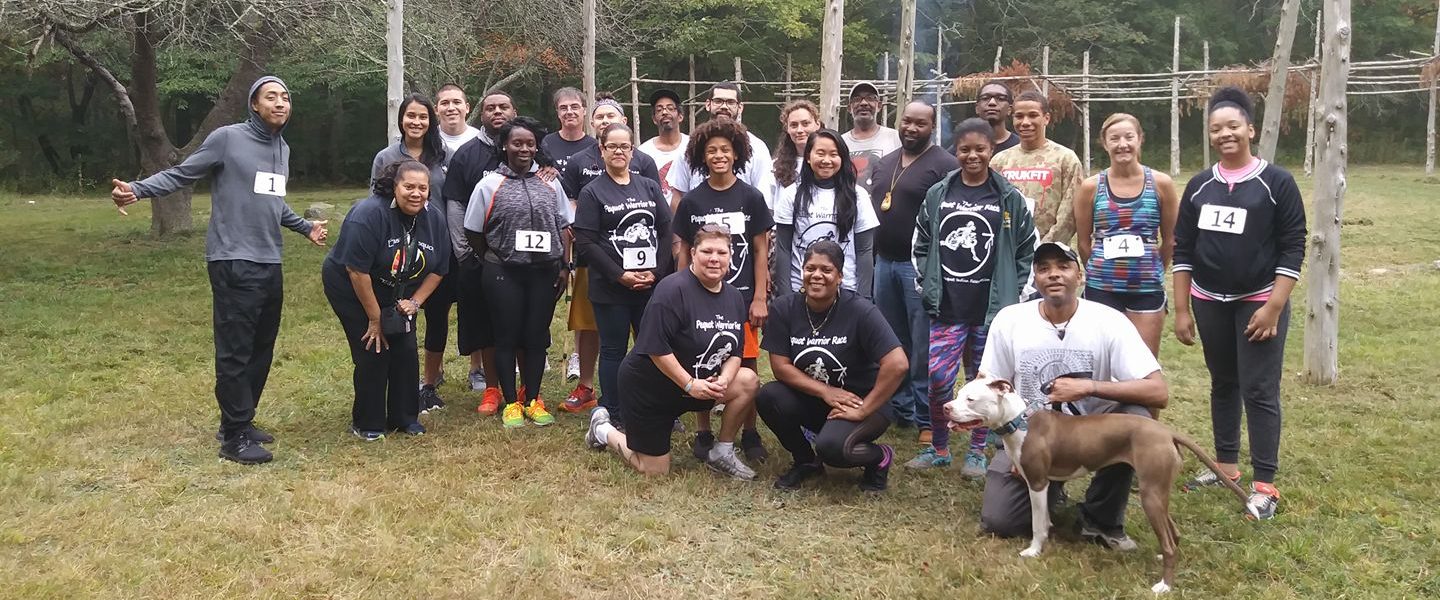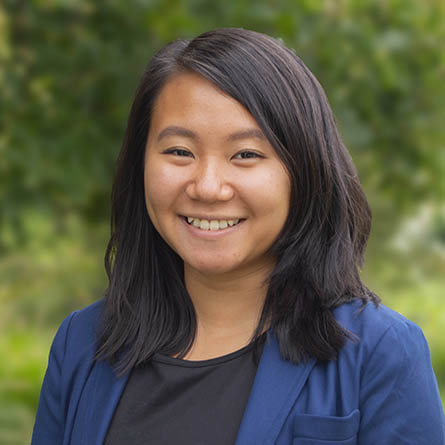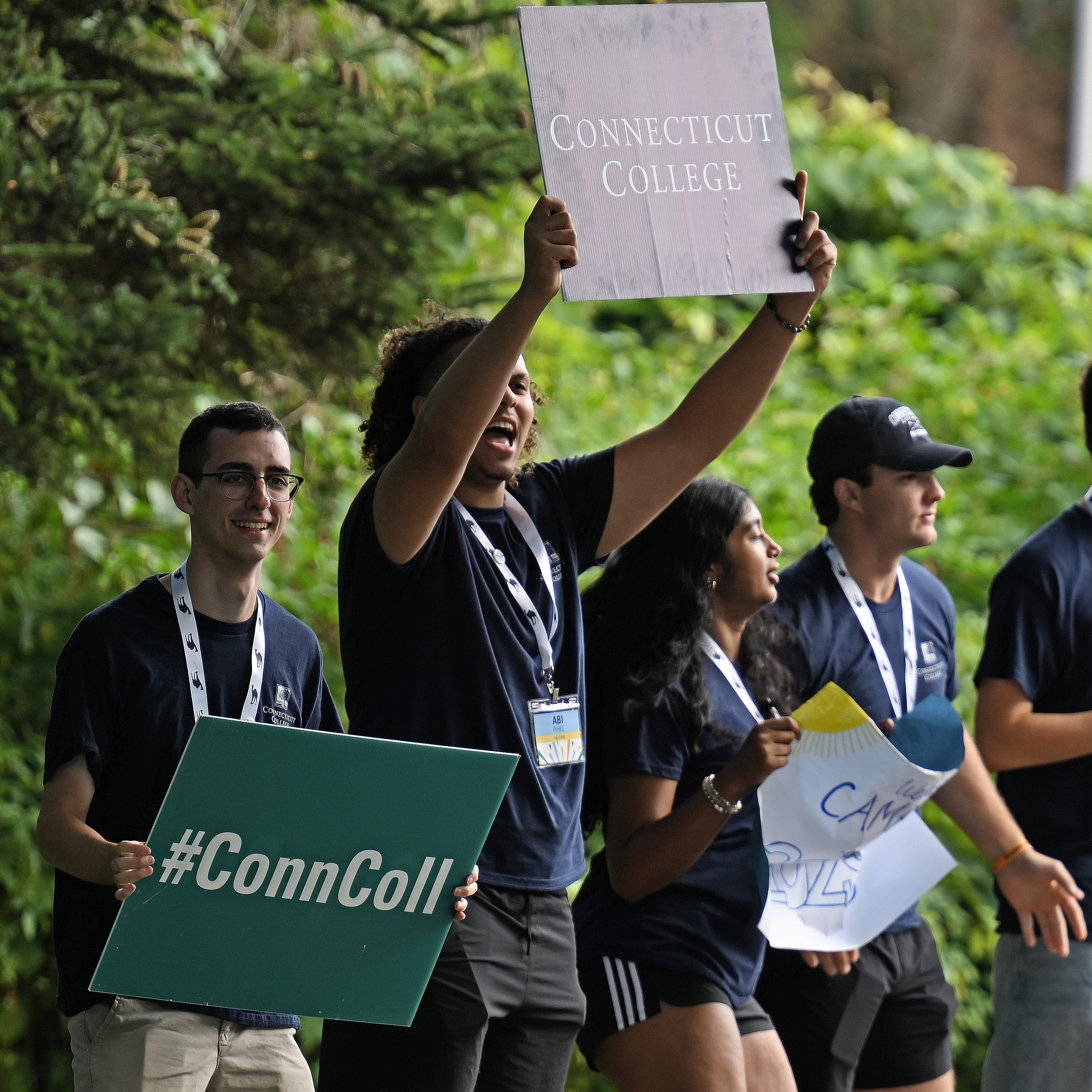
Path (and Pavilion) to Peace
There are no central gathering spaces or safely marked trails on one of the oldest continuously occupied Native American reservations in the United States.
That’s about to change.
The state-recognized Eastern Pequot Tribal Nation, which lost federal recognition in 2005, has limited funds to maintain and make use of its 225-acre land reservation in North Stonington, Connecticut. So leaders of the more than 1,200-member tribe have partnered with Lan-Huong Nguyen ’19 to create a three-mile hiking and walking trail and construct a wooden pavilion to serve as a central outdoor space for the community to gather.
To finance the project, which will be completed this summer, Nguyen applied for and won a $10,000 Davis Projects for Peace grant.
“Allowing members to congregate in a centralized area on their sacred land will allow them to strengthen their bonds together as one tribal nation and can ultimately lead to strengthening relationships with other nearby tribal nations,” Nguyen said.
Nguyen first met members of the EPTN while working on a community garden project in 2016 through her “Native American: Genocide and Resistance” course. She wanted to learn more about the tribe’s history and needs, so her professor, Ron Flores, put her in touch with EPTN council member Mitchel Ray. He invited Nguyen, an ethnobotany and anthropology double major, to attend social events and collaborate on programming and outreach.
“As the connection between the Eastern Pequot Tribal Nation and Conn strengthened, tribal members began sharing what they envisioned the land reservation could have for the future of their tribe. That was when the idea of a path and a pavilion was proposed,” Nguyen said.
Nguyen began researching the possibility and, last summer, participated in the Eastern Pequot Archaeology Field School with the University of Massachusetts, Boston, which has uncovered more than 99,000 EPTN artifacts, including arrowheads, musket bullets, dining utensils and jackfield pottery.
“These items are proof that the Eastern Pequots’ ancestors lived, survived and thrived on the same land that European colonizers and current tribal members walk on today,” Nguyen said.
Nguyen also interviewed members of the EPTN for her senior independent study, “Pequot Warriors Combating Paper Genocide: How the Eastern Pequot Tribal Nation Uses Education to Resist Cultural Erasure,” which will be published in the Journal of Undergraduate Ethnography later this month.
In all of her work, Nguyen is careful to collaborate with tribal members on initiatives important to them. That’s why she is particularly excited about the upcoming trail and pavilion project.
“Peace for the EPTN means their tribal members can heal internally by reconnecting to their culturally and historically significant land, while also connecting with one another,” she said.


